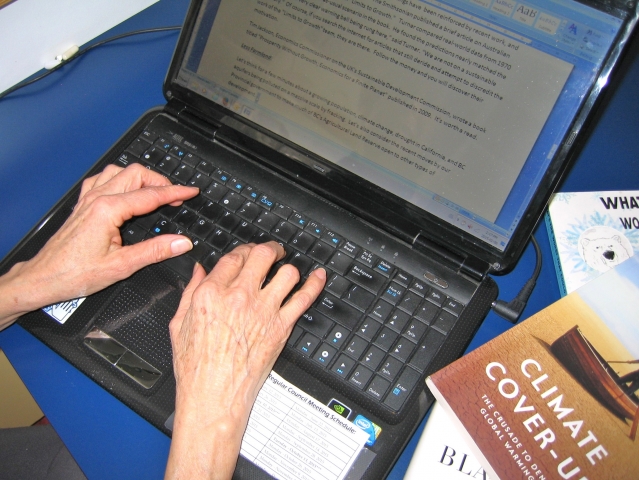EDITORIAL RANT: Rape Culture Sums Up Human Society, So Far
A reader recently commented privately about the recent “Rape and Consequences” article, and expressed dismay that Canada’s “rape shield” legislation is not more effective at curbing defence attorneys’ strategy of “whacking the victim” in court. Her comment made me think: our society’s acceptance of “rape culture” is evidence of an ingrained sexism, but its origins go far beyond sexism.
The English word “rape” comes from the Latin, “rapere” — to seize and take away by force. And that pretty much sums up how we humans conduct ourselves in this world.
Our rape culture is just that — our entire culture. It’s our general collective attitude toward all of life on earth, and everything that supports life. That rape-culture attitude probably springs from what’s become commonly and simplistically known as the “reptilian brain” — the most primitive part of our brain, the part that provides us with territorial urges, reproductive urges, automatic self-protective reactions, anger, fear, aggression (including bullying), and the urge to take whatever we can get that we think will aid in our survival.
Water is one example of a resource crucial for survival. And we do take it. In the past, BC issued water licences on creeks to such an extent that people’s rights to remove water exceeded the ability of some creeks to supply that water during parts of the year. Until recently, there was no consideration at all of the possible limits on the ability of aquifers — underground water sources — to supply water. If it was there, we just took it. Now, in many places, aquifers are being depleted and cannot recharge nearly fast enough to replace what’s being taken. Food production is already being diminished by drought and the depletion of aquifers such as the Ogallala.
Can’t see the forests for the trees? In some areas, it’s becoming hard to see the forests for the clearcuts: for example, in what used to be called “the lungs of the world” — the Amazonian rainforest in Brazil. Closer to home, I have spoken with foresters who acknowledge that BC’s Annual Allowable Cut — which could more accurately be called the “Annual Required Cut” — is too high to be truly sustainable. And it is becoming common knowledge that deforestation in many countries is resulting in more and greater drought, accelerated climate change, and the death of many creatures who lived in those forests. Among many other examples, BC’s Mountain Caribou population has become tiny and is threatened, largely because humans have cut down the forests the caribou need for survival. But we think we need more jobs, so we cut more trees. And then we export large numbers of them as raw logs, rather than actually creating more jobs from the destruction of our forests and wildlife; so we add short-sighted expediency to the short-sighted rapaciousness.
One could write entire volumes on how humans have short-sightedly reaped resources and used them — and disposed of the waste products unwisely — to our own detriment as well as to the detriment of life on earth generally. We have followed those primitive rapacious urges in so many ways that, ultimately, may result in a drastic reduction in humanity’s average standard of living, and which also stand in stark opposition to modern values such as justice, kindness, fairness, equality, liberty, respect for diversity, and any striving for long-term ecological health.
We have stolen other human beings to use as our slaves, on a large scale. The more powerful of us have punished entire cohorts of other human beings for being different from us: for having skins of a different colour, or for not having as much money, or for having different religions or languages. We have consistently waged bloody warfare against our fellow humans to get more territory or other resources for our own tribes, and to kill off those other tribes, or to enslave them. And of course, there is oppressive sexism in many cultures.
Despite knowing, as we do now, that a diversity of life on earth enriches all life, we continue to act in rapacious ways that result in the diminishment or extinction of life forms. We have killed off so many species already that some scientists say that humanity’s collective actions are in the process of causing the planet’s sixth mass extinction. That may not be such a bad thing, in the long term: as some species go extinct, others better adapted to the conditions causing the extinctions may have more room to expand and evolve — just as mammals did after most of the dinosaurs died off so suddenly, about 66 million years ago, after being a dominant life form for about 167 million years. And who knows? Perhaps the next dominant life form on earth will not cause as much suffering and destruction as humans have done. (I nominate trees to take over the planet; they’re good at nurturing and sheltering other life, and they don’t have those dangerous opposable thumbs.)
Or perhaps humans can work together to achieve harm reduction — to reduce the harm we do to all life on earth with our hubris and our parasitic, rape-culture economy. Perhaps we can curb our sense of entitlement, our feeling that we have some divine right to take it all until it’s all gone, before it’s all gone. Perhaps we can make use of the analytical and creative aspects of human intelligence, and our ability to consider future potential outcomes, to change our rapacious ways.
If we do that, maybe we can ensure our own survival. If we can’t do that, our cleverness and technologies will not have served us any better than the limited intelligence of bacteria in a Petri dish that die off after consuming all the nutrients in the dish.
Can ordinary people contribute to a shift in values, away from entitlement and our rape culture, away from worshipping accumulation of wealth at the expense of so much of life on earth, and toward a forward-thinking, problem-solving, life-enhancing approach? How can individuals help do that?
Some obvious beginnings: find out what does the most damage, and stop doing it, or start doing much less of it. Things like: driving, flying, engaging in motorized recreational activities instead of muscle-powered ones, buying unnecessary plastic stuff, buying unnecessary stuff no matter what it’s made of, buying stuff made in sweat-shop conditions, buying stuff that comes from far away, admiring people for having more stuff than they need, throwing away stuff that still works just because you want something new. Make it fashionable to make things last as long as possible. And so on. Ditch the consumer mind-set.
Another helpful thing: pay attention, and vote for political candidates who show clear signs of wanting to work cooperatively for a healthier society and a healthier planet. Insist on proportional representation as our next electoral system. Push the Precautionary Principle.
Another thing: demand that news media delve into the important questions instead of just providing distraction from them. (Check out John Oliver’s take on this issue if you have 19 minutes to spare.) We do need distraction sometimes, but to make a viable way forward we need know why we’re seeking distraction in things like cute cat videos and escapist literature.
To sum up — rape culture is a destructive thing. It’s despicable that some people feel entitled to rape others, it’s dangerous that victims of sexual assault feel inhibited from reporting it, and it’s appalling that defence attorneys still feel entitled to “whack the victim” when those reported cases do get to trial.
It’s also destructive and appalling that humans feel entitled to rape the earth — that’s the all-encompassing aspect of our global rape culture, and the powers that be still “whack” those who dare challenge it. Judging by current events and and the state of much of our legislation, a lot more challenging is needed. Let’s start “whacking” the wrong-doers instead.

























